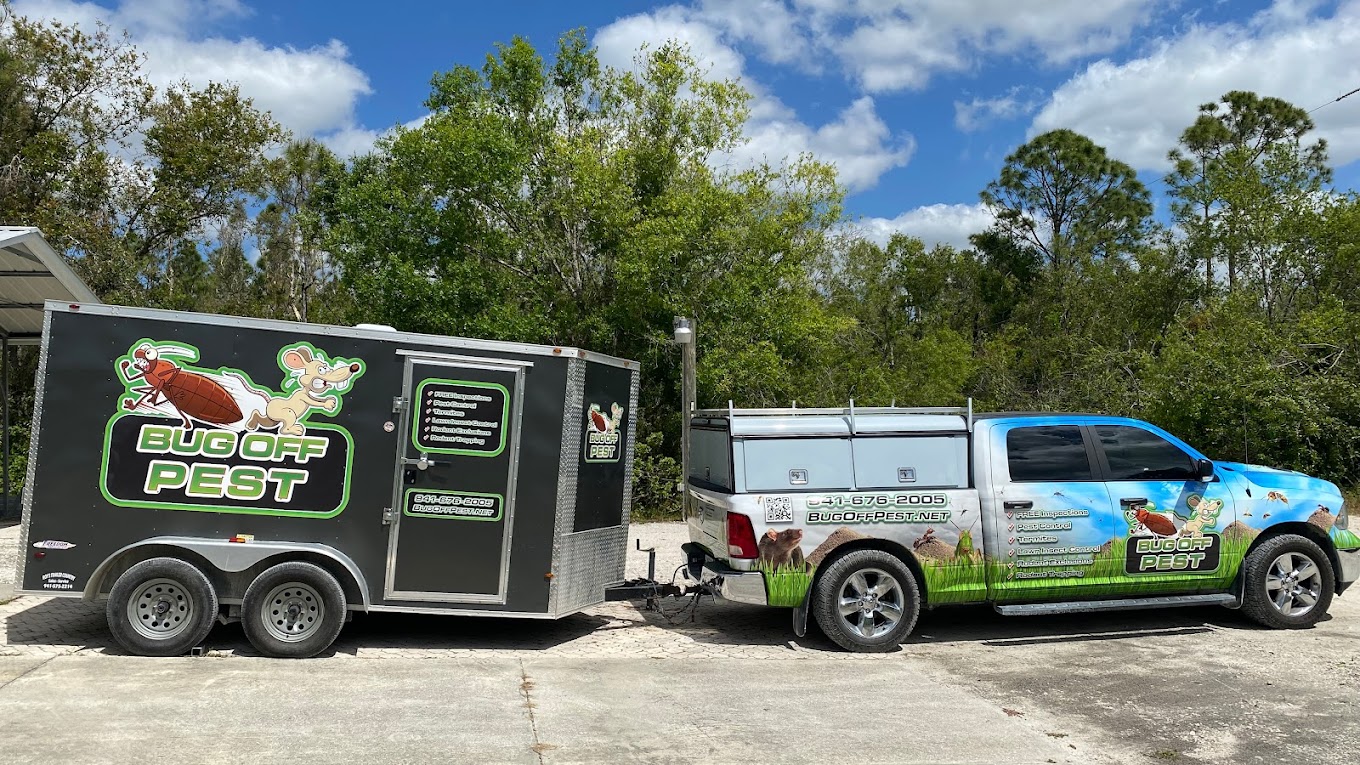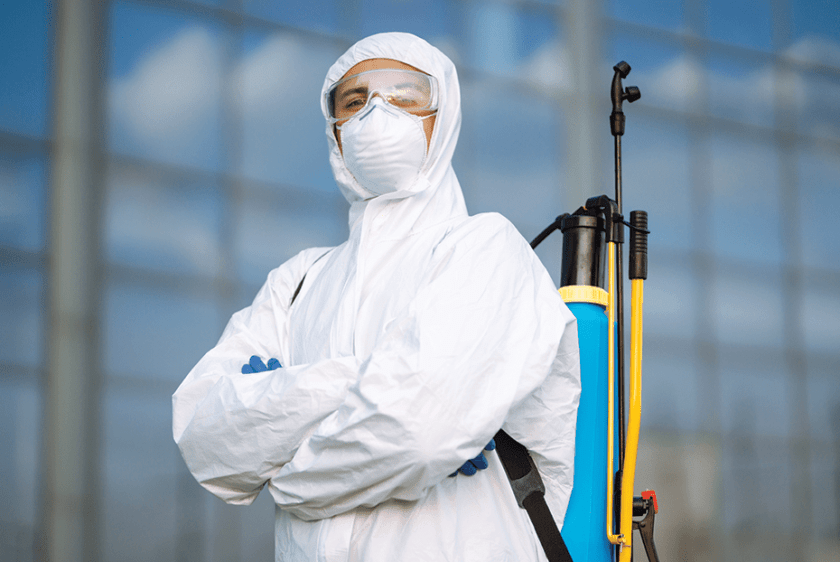Get rid of pests with professional Pest Control in Port Charlotte now.
Get rid of pests with professional Pest Control in Port Charlotte now.
Blog Article
Exploring Ingenious Methods and Products for Effective Insect Control
The landscape of pest control is developing, marked by the emergence of innovative strategies and products designed to enhance efficiency and sustainability. From wise traps equipped with sophisticated surveillance systems to biological approaches that utilize natural predators, these advancements provide a paradigm change in just how we approach pest monitoring.
Smart Traps and Keeping Track Of Systems
Exactly how can contemporary technology boost pest management? One significant improvement is the advancement of wise traps and checking systems, which give real-time information and analytics for effective pest control. These systems make use of sensing units and cordless innovation to find insect activity, alerting residential property supervisors and pest control specialists to problems prior to they intensify.
Smart traps are geared up with functions such as bait stations that draw in insects and capture them efficiently. These traps can be monitored remotely, allowing for timely treatments and lessening the requirement for substantial chemical applications. The combination of maker understanding algorithms makes it possible for these systems to separate in between target pests and non-target types, improving the accuracy of insect control steps.
Additionally, the information accumulated from clever catches can be evaluated to identify patterns in insect habits and environmental elements contributing to invasions (Pest Control in Port Charlotte). This information is very useful for creating targeted parasite management methods tailored to specific settings. By welcoming clever traps and keeping track of systems, pest control specialists can boost their functional effectiveness and minimize the eco-friendly effect of pest monitoring, ultimately bring about safer and much more sustainable practices in the market
Organic Bug Control Approaches
Utilizing natural predators and bloodsuckers, biological parasite control methods offer an environmentally friendly option to chemical therapies. This strategy entails the introduction or improvement of certain organisms that can normally regulate insect populaces, therefore decreasing dependence on synthetic pesticides. Usual examples consist of making use of ladybugs to control aphid invasions and parasitical wasps to target caterpillars.

Biological control can be categorized into 3 major methods: timeless, augmentative, and preservation. Classical organic control includes importing natural adversaries from the parasite's indigenous environment, while augmentative control includes increasing the population of existing natural enemies via releases. Conservation techniques concentrate on producing conditions that sustain these valuable microorganisms in the ecosystem.
It frequently requires a thorough evaluation of pest characteristics and the life cycles of both the pests and their natural adversaries. As awareness of ecological concerns grows, organic parasite control methods are progressively acknowledged for their lasting function in incorporated parasite administration programs.
Eco-Friendly Chemical Alternatives
Eco-friendly chemical options provide a feasible solution for insect administration that decreases ecological effect while effectively controlling insect populations. These options are acquired from natural sources and are meticulously formulated to target particular pests without harming valuable organisms, making them a crucial element of lasting parasite control strategies.
Amongst one of the most efficient environmentally friendly options are plant-based pesticides, such as neem oil and pyrethrin, which are stemmed from the seeds and flowers of numerous plants. These substances interrupt the go to the website life process of parasites, minimizing their populaces without the hazardous results connected with traditional pesticides - Pest Control in Port Charlotte. Additionally, important oils like peppermint and clove oil exhibit repellent residential properties, better boosting their energy in bug management

Furthermore, green chemical alternatives commonly break down faster in the atmosphere, lowering the risk of soil and water contamination. This characteristic aligns with the enhancing customer need for lasting techniques in agriculture and city insect control. As study continues to advance, the growth of innovative environment-friendly solutions will certainly even more improve efficacy and expand application areas, allowing pest monitoring specialists to adopt greener, more responsible methods in their practices while protecting human health and wellness and the atmosphere.
Pheromone Disturbance Methods
One more ingenious technique in lasting bug administration is using pheromone interruption strategies. These approaches exploit the natural chemical signals, or scents, that bugs utilize for communication, particularly in mating behaviors. By interfering with these signals, pest populations can be properly taken care of without resorting to dangerous chemicals.
Scent traps are frequently employed in this method. These traps utilize over at this website synthetic versions of insect pheromones to entice male bugs, thus decreasing their ability to situate ladies and recreate. Gradually, this can result in a substantial decline in bug populations. In addition, the release of repellent pheromones can produce from this source confusion among insects, better hindering their breeding procedures - Pest Control in Port Charlotte.

Integrated Parasite Monitoring Strategies
Reliable parasite control commonly requires a thorough strategy, and Integrated Bug Monitoring (IPM) methods provide a structure for achieving this objective. IPM integrates different management techniques to reduce bug populations while reducing dependence on chemical pesticides. This multifaceted technique begins with thorough surveillance and identification of bugs, enabling for targeted interventions based on particular pest stress.
Cultural techniques, such as crop turning and sanitation, play a crucial function in protecting against bug establishment. Biological controls, including natural killers and parasitoids, are used to maintain pest populaces at manageable degrees. When essential, selective chemical therapies are used, highlighting lower poisoning to non-target varieties and the setting.
By employing this holistic method, IPM not only improves bug control effectiveness but likewise contributes to long-lasting environmental equilibrium. Inevitably, Integrated Parasite Monitoring represents a forward-thinking option that straightens farming efficiency with ecological stewardship, making it necessary in modern pest control approaches.

Final Thought
In verdict, the assimilation of cutting-edge methods and products for effective bug control stands for a substantial innovation in lasting insect management. Smart traps and checking systems, biological pest control approaches, eco-friendly chemical options, and pheromone interruption techniques collectively boost the effectiveness of pest monitoring techniques.
Report this page